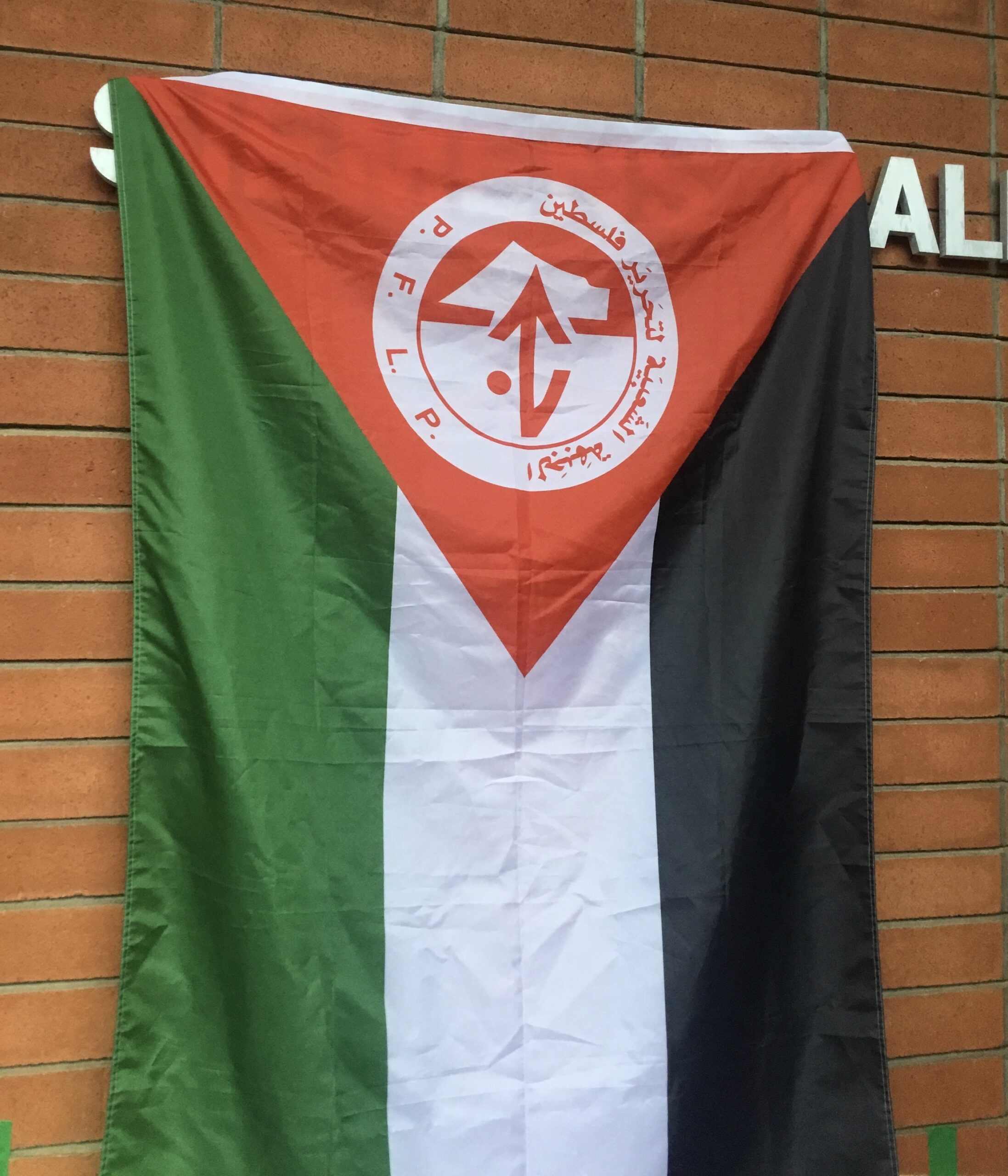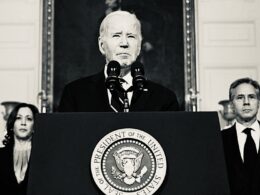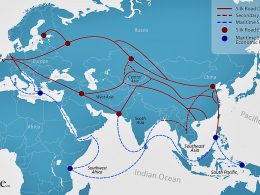If the psyop agents behind the major media outlets were managing the Uhuru case the same way they’ve managed the Russiagate narrative; or managed the narratives smearing Julian Assange; we would be seeing so much more media attention given to Uhuru. We would see the New York Times, the Washington Post, CNN, and the other corporate propaganda sources constantly working to convince the public that the DOJ’s “Russian interference” charges against the org are true. So why isn’t this happening? Why did these outlets last cover Uhuru this April (when the indictments happened), and then stop?
These outlets may have portrayed the story in a way designed to nudge their readers towards believing the charges, but under the circumstances of an ordinary media psyop, this would be considered totally inadequate. It’s so unlike when Assange was arrested outside the Ecuadorian embassy in London in 2019, and the media had already spent years spreading character attacks against Assange while portraying WikiLeaks as a Russian front.
The reason the media has been so quiet about Uhuru is because it’s better to leave the vast majority of the public unaware that Uhuru exists, than suddenly bring universal attention to it; and that’s true even though the media would make sure this attention is negative. If all we were hearing from the media is that this little-known Black liberation org is one of the biggest threats to the country’s “democracy,” most would be suspicious, and there would be a national debate which Uhuru’s slanderers couldn’t win. Too many Americans are open to Uhuru’s anti-NATO ideas for a majority of them to be prime propaganda targets in an Uhuru hate campaign; this has been shown by how over the summer of 2023, more than half the U.S. public came to be against funding Ukraine.
I’ve made this observation several times in the last couple months, since that consciousness shift became apparent and Ukraine’s summer counter-offensive failed; these developments have made it even more important for our ruling class to successfully repress the anti-imperialists. What also became clearer during this last week—when the Uhuru case shifted into its oral argument phase—is that the media’s avoidance of the case is indicative of a broader, growing anxiety among the ruling elites. This anxiety comes from a sense of losing their dominance over the discourse. It’s only now that their project to ally with Ukrainian Nazis has finally begun causing serious narrative repercussions for them; the backlash towards Canada’s Honoring of a Nazi has occurred beyond the anti-imperialist media circles, with the incident becoming a highly relevant topic across all levels of our discourse.
There have naturally been attempts by the NATO-aligned media to portray the World War II Nazi who Canada praised as “not really a Nazi, only a fighter of the Soviets”; but these arguments have been too inherently weak to be a dominating force in the conversation. The prevailing perception has been the correct one: that a “progressive” and “humanitarian” government glorified a direct participant in Hitler’s genocidal project.
The Democratic Party neocon demagogue Bill Maher hasn’t tried to defend Ukraine from the Nazism accusations the incident has produced, because these accusations have too much of a factual basis; and that’s significant given Maher’s history. Maher has not just aggressively promoted the anti-Russian psyops, but tried to deny the Israeli genocide against Palestine; he loves to defend the indefensible and lie on behalf of the war-makers. Under normal circumstances, he would be self-righteously attacking everyone who recognizes the reality the incident has revealed. But he’s been forced to narratively retreat on Ukraine, instead making his latest show focused on the safer topic of Covid lockdowns. And the rest of the liberal order’s propagandists are having to become quieter as well, whether on goals they want to see fulfilled (like Uhuru’s conviction) or on debates they wish they could win (like the one over Ukraine).
The hope of the narrative managers is to divert attention away from these stories over the next year, and make stopping Trump into the only thing we’ll think about for a while. Then the national security state will be able to use the precedents which the lawfare against Trump has established to purge anti-imperialists, crushing all authentic opposition to the measures by the elites to degrow the economy. Or at least that’s the preferred outcome of these elites; there are so many variables which threaten to ruin this plan for saving capitalism. Their entire operation relies upon the majority of the people—who are increasingly disillusioned with the war machine, and lost faith in our economic system with the 2008 crisis—being unable to sufficiently assert their material interests during the near future. And through our movement-building efforts, we can absolutely give the people the tools to do this.
The more these developments occur, the more apparent it gets that we won’t be able to carry out this mass mobilization while depending on the communication frameworks the system has created. Social media is fake; online “popularity” is an illusion; we shouldn’t be centrally concerned with building an internet presence, and that’s something which myself and so many others in the modern communist movement have needed to learn.
If you base your thinking and practice off of what comes from the online sphere, you’re going to be taught to act like an agent of controlled opposition; to follow the fundamental thought patterns of the Democrats and the anti-communist radlibs, wherein supporting things like Operation Z or Rage Against the War Machine is seen as going against “leftism.” The more we force Uhuru into the conversation, the more the narrative managers of these leftist spaces are going to also put Uhuru into that category of untouchables; if we model ourselves off of what they say is acceptable or not, we’ll never become effective agents in the class struggle.
Social media is, for us, at the most a temporary means for bringing more people into the in-real-life struggle. We can also use it to change the popular consciousness, but the platforms the capitalists have built will only let people do that within certain parameters; notice, for instance, how none of the leftist or ostensibly anti-imperialist influencers who these platforms tolerate the most are speaking out against Uhuru.
I’m unable to find any evidence that Ben Norton has so much as talked about Uhuru, even though he’s felt it worthwhile to make entirely unnecessary and inappropriate comments about Darya Dugina after the Ukrainian Nazis murdered her in a terrorist attack last year. That shows how skewed his priorities truly are, however much he reposts correct information about geopolitics; what ultimately matters are the actions somebody takes when the pressure is greatest for them to compromise.
From the perspective of building a social media brand, the rational thing is to distance oneself from the formations that the empire seeks the most to destroy, while narratively supporting the most strategically important of the empire’s crimes. That’s not the framework we should be working off of. If somebody is ignoring or neglecting the Uhuru case; while reinforcing the narratives used to justify the most damaging acts of warfare which the empire carries out; then you know they’re not trustworthy.
In this post-Ukraine era of the empire’s collapse, our enemy is weakened, but that’s made it more inclined to take extreme measures to stop dissident forces. We must distinguish between who is and isn’t truly on the right side in this conflict; and ally with those who are on the right side so we can build a relationship with the broader mass of the people. The state and its ruling elites are trying to get in place to crush us, and we have to not let them succeed. Consider the present moment of quiet from our media about the most important narrative issues to be a prelude to the next phase; the phase where the ruling class tries a major new maneuver against the anti-imperialist cause, and the strength of our movement gets tested.
————————————————————————
If you appreciate my work, I hope you become a one-time or regular donor to my Patreon account. Like most of us, I’m feeling the economic pressures amid late-stage capitalism, and I need money to keep fighting for a new system that works for all of us. Go to my Patreon here.
To keep this platform effective amid the censorship against dissenting voices, join my Telegram channel.








